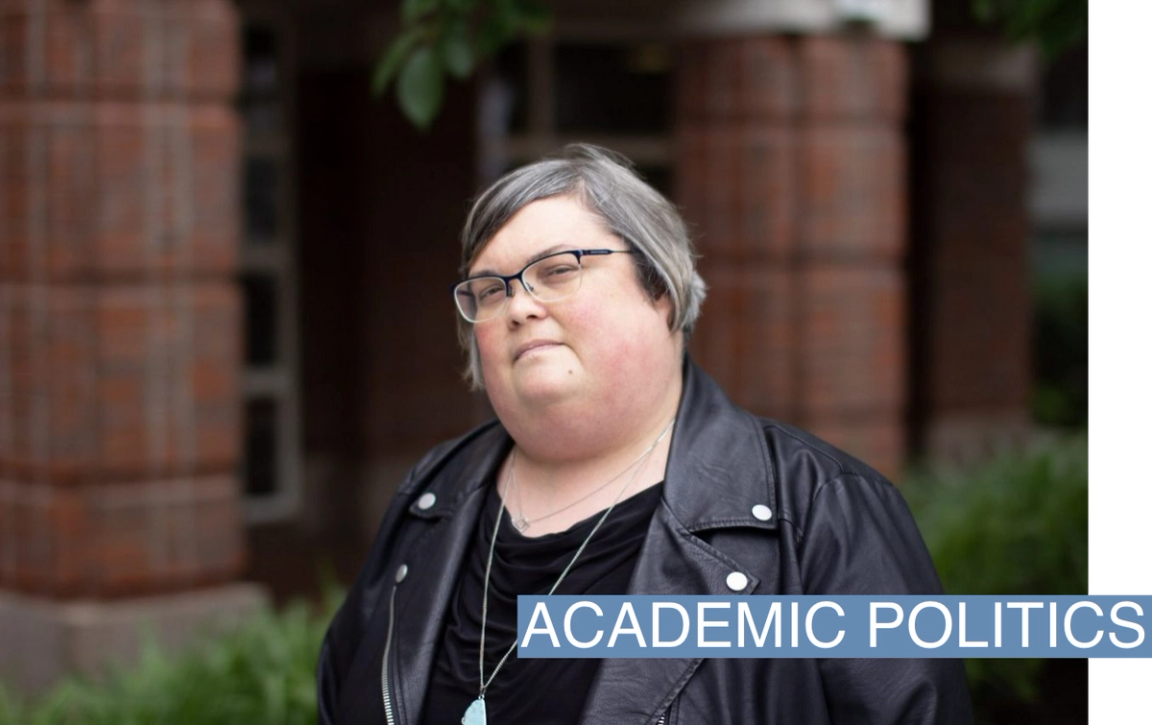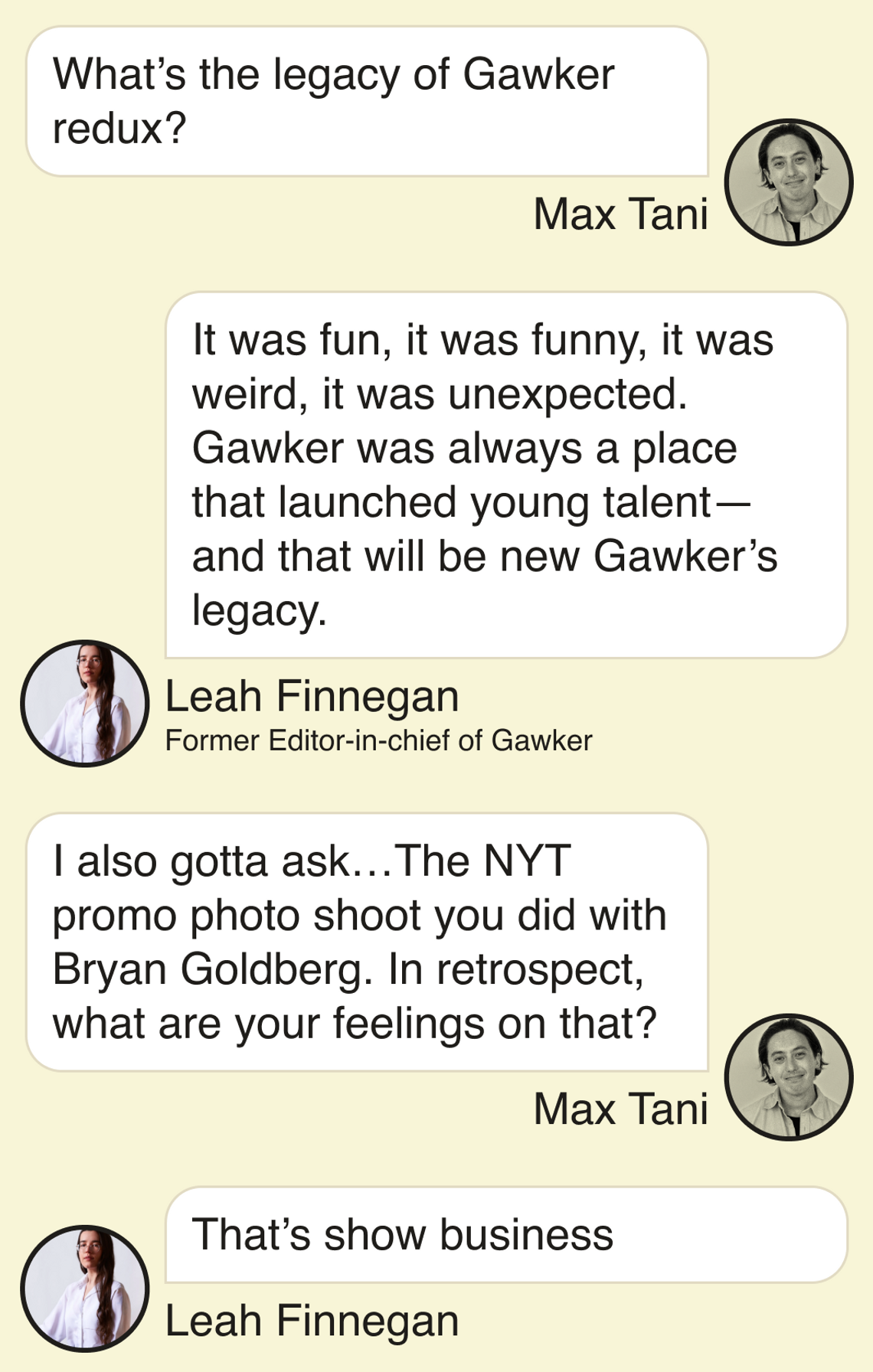 Harvard Kennedy School Harvard Kennedy SchoolTHE NEWS The highest-profile scholar of misinformation is being forced out at Harvard’s premier public policy school, and interviews and internal documents reviewed by Semafor illustrate the institution’s discomfort with her high-profile and politically charged work. BEN AND LOUISE’S VIEW Joan Donovan, Research Director of the Shorenstein Center on Media, Politics and Public Policy, is a defining and combative voice in the study of how false information travels on the internet. She became a prominent commentator after the 2016 election of Donald Trump, when many Democrats blamed misinformation on social media for his election. Her departure is tangled up in the arguments over whether misinformation is an academic pursuit or a partisan one, and it played out inside a cautious, American institution trying to hold a shrinking political center. “The Kennedy School’s decision to force out Joan Donovan and her team raises real questions about the school’s willingness to support critical and controversial work focused on democracy and technology,” said Garrett Graff, director of cyber initiatives at the Aspen Institute, which also invested in misinformation research. Donovan’s public profile dominated the Shorenstein Center’s public image. She wrote opinion pieces for places like The New York Times, Wired, and The Atlantic, was regularly quoted by journalists at many outlets, and appeared on CNN and MSNBC. In October 2020, the House Intelligence Committee invited her to testify on misinformation and conspiracy theories. But behind the scenes, Donovan was also a source of discomfort for the Kennedy School, which has battled a kind of second-class status at Harvard as an institution run by journalists and politicians within a university dominated by superstar academics. Donovan clashed with powerful social media platforms, which are a source of both data and funding to many other scholars. That conflict became clear during a private, virtual meeting of the Kennedy School’s “Dean’s Council” on October 29, 2021, where Donovan presented to the school’s top supporters on “Curbing the Damage Caused by Misinformation.” One of the council’s members was Eliot Schrage, the former head of policy at Facebook. He aggressively challenged the premise of Donovan’s work, according to two people present. He delivered Facebook’s perspective that the platform should not be the arbiter of truth and falsity, and that journalists and academics often tag politics they don’t like as “misinformation.” (Donovan declined to comment on her status at the Kennedy School. Schrage declined to comment for this story.) Donovan’s supporters believe her involvement with an archive of documents leaked by former Facebook whistleblower Francis Haugen led to her dismissal, though there’s no clear evidence directly linking the moves. Facebook’s COO Sheryl Sandberg gave more than $5 million to the Kennedy School between 2012 and 2018, according to a school report. Students on Saturday circulated an open letter calling her ouster “an act of censorship and a chilling violation of academic freedom.” They demanded that Dean Doug Elmendorf, who had been Sandberg’s undergraduate adviser, resign. In a different, also unreported incident, she took heat from the political left. In January of 2021, a Shorenstein Center journal, Misinformation Review, whose editorial board includes Donovan, published a paper led by another researcher, Mutale Nkonde. The paper accused a group called American Descendants of Slavery of engaging in what it called “disinformation creep.” The paper relied on research from the progressive group MoveOn, and provoked heated denials from its subjects. In December of 2021, the journal retracted the study, finding that it “failed to meet professional standards of validity and reliability,” and that its conclusions were based on “a few selected tweets.” Misinformation Review’s editors said the retraction was in response to complaints from ADOS, which last summer filed a defamation lawsuit against the Kennedy School and the author. Nkonde’s allies blamed Donovan, who does not oversee the journal. In a letter to Donovan last October, Jesse Daniels, a professor at Hunter College, accused Donovan of engaging in a “nefarious whisper campaign” against Nkonde, and letting down the fight against “white supremacy” in favor of “maintaining the (white) status quo.” Daniels demanded Donovan apologize and tell funders that she was “mistaken,” and continued: “If, however, you’re not able to take this in, then what will happen next is not going to be pleasant for you.” She said she would “alert everyone I know at Harvard (and many more I don’t know) about your actions.” Daniels declined to comment on the incident, because she said she had received a cease and desist letter. Nkonde declined to comment on the record, but sent a tweet Saturday that seemed to suggest Donovan’s firing had ended a period of “bullying.” (Donovan said she was not involved with publishing the paper, and that the journal’s top academic sponsor and Harvard Office of General Counsel led the retraction.) Harvard officials say Donovan’s prominent profile, her adversarial stance toward Facebook, and the political fireworks around her had nothing to do with the decision to force her out. Instead, Kennedy School leaders said they were simply enforcing a rule against non-faculty academics leading projects, except with the dean’s explicit designation. A Harvard official familiar with the situation said that Nancy Gibbs, a former Time editor who is now the director of the Shorenstein Center, had taken formal sponsorship of Donovan’s research in 2019. But she was “not really leading that project intellectually,” the official said, just signing off on the paperwork. Gibbs and Elmendorf, an economist and former Obama aide, jointly decided last year that Donovan and her team of more than 20 should end its work in order to comply with Harvard policy by 2024, the official said. The move comes as the Kennedy Center has sought various ways to find a safe space in a difficult political landscape. In January of 2021, Elmendorf asked New York Rep. Elise Stefanik to resign from an advisory committee because she had made false statements about voter fraud. Elmendorf more recently blocked the appointment of the human rights advocate Kenneth Roth to a fellowship over, Roth said, criticism of Israel. Elmendorf last month reversed that decision. While there’s no formal indication that Donovan’s lightning-rod status played a role in her dismissal from Harvard, an email Elmendorf sent her this January 6, 2023 hints at that concern. In the email, he cites “my earlier decision about not raising the profile of your projects.” ROOM FOR DISAGREEMENT The dispute over Donovan’s status comes amid a broader debate over the idea of misinformation. Many of Donovan’s allies have shifted their focus to a kind of forensic reporting about social and digital media, and her center’s largest recent project was a straightforward study of the Capitol rioters’ motivations. In testimony submitted to the House January 6 Committee last year, two professors at Ursinus College, Anthony Nadler and Doron Taussig, argued that a new kind of identity politics and political narrative, not information, are the driving factors: “We see no convincing evidence that disinformation is the primary or even necessary element of the broader sectarianization process.” NOTABLE - The news about Donovan’s dismissal was first reported by the Harvard Crimson, which said she was being forced out of the Kennedy School, citing three staff members.
- The Kennedy School has long struggled for first-class status at Harvard. It relies “on its world-famous alums and powerful VIP speakers to maintain the status quo and convince fresh faces to keep signing up for what has long been considered a less-than-challenging degree,” a skeptical Boston Magazine reported in 2017.
Read the story on the web here
| 



